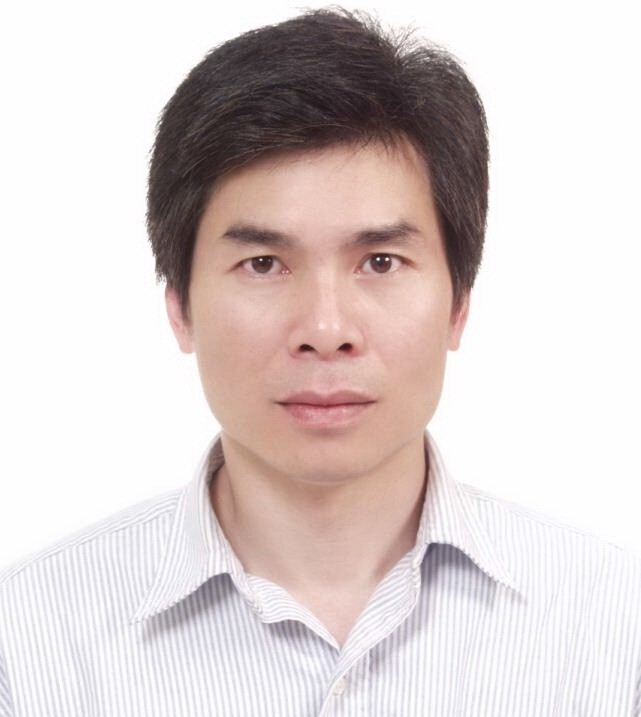王憲威 Shainn-Wei Wang

Shainn-Wei Wang, Ph.D.
E-mail:swwang@mail.ncku.edu.tw
TEL:06-2353535 ext 4218(off.) ext 4217(lab.) FAX:06-2095845
Virology and Vaccine Development Lab
|
Educations / Professional Experience |
||
|
Educations |
1992/09-1996/09 |
Ph.D. The Pennsylvania State University (Genetics) |
|
1990/09-1992/09 |
M.S. The Pennsylvania State University (Genetics) |
|
|
1983-1987 |
B.S. Fu-Jen Catholic University (Biology) |
|
|
Current Position |
2004/08- current |
Adjunct Associate Professor, The Institute of Basic Medical Science of NCKU |
|
2004/08- current |
Associate Professor, Institute of Molecular Medicine, National Cheng Kung University Medical College |
|
|
Professional Experience
|
1997/09-2004/07 |
Postdoctoral Research Fellow, Harvard Medical School/Children’s Hospital |
|
1996/09-1997/09 |
Postdoctoral Research associate, Pesticide Research Laboratory, Inter-college program Genetics, The Pennsylvania State University |
|
|
1993-1996 |
Research assistant, Pesticide Research Laboratory, The Pennsylvania State University |
|
|
1989-1990 |
Research technician, Fu-Jen Catholic University, Microbiology Laboratory |
|
|
1986-1987 |
Internship (HPLC certificate), Asian Vegetable Research and Development Center, Plan physiology Department |
|
|
1985-1986 |
Internship: Fu-Jen Catholic University, Plant Ecology La |
|
|
1996 |
Biochemistry and cellular biology of the interaction of Bacillus thuringiensis toxin with Spodoptera exigua midgut epithelial cells in vitro. The Pennsylvania State University. Ph.D. dissertation. |
|
|
1992 |
Purification and characterization of the Platinota idaeusalis baculovirus pathogenic to Apple bud moth. The Pennsylvania State University. M.S. Thesis. |
|
|
Expertise /Research Interests |
|
|
Immunology/DNA vaccine; mucosal and cellular immunity |
|
|
Research Interests |
Coordinated interactions between viral and host proteins are necessary to support a virus lifecycle and the formation of infectious entities. What kinds of cellular proteins are hijacked by viral proteins for viral entry, replication, assembly, and budding? Are there antiviral molecules, restriction factors, or sensors in the host cells to be antagonized during viral infection for immune or non-immune escape? Can we dissect such intricate virus-host interactions into subcellular pathways or molecular levels to advance our knowledge for the development of better antiviral drugs, vaccines, and diagnosis tools? These are the basic questions and scientific pursuits of my laboratory. My current research directions mainly involve the understanding of several critical host factors that participate in Hepatitis C virus (HCV) and Enterovirus (EV-A71) infection and pathogenesis. |
|
Research Directions |
My long-term goals are to: (1) understand the pathogenesis of critical epidemic viruses in Asia: We are interested in finding out how the gene networks are reprogrammed in DC, macrophage, and T cells in responding to viral infections. Gene chips and Flow cytometry techniques will be used to investigate possible pathogenic mechanisms related to cellular apoptosis or other signaling events. (2) identify host restriction factors for viral infection: For example, by comparing the intracellular protein profiles of susceptible cells to those of non-susceptible cells while exposed to a virus or a viral protein, we will investigate critical cellular factors that have direct protein-protein interactions with interested viral protein(s) in restricting viral entry, assembly, genome encapsidation, or replication. Such cellular protein networks will be explored through Tandem-tag affinity purification and mass spectrometry.
My ongoing projects include the following: (1) Identification of critical cellular factors or subcellular interactome(s) of HCV core protein in liver and immune cells for viral infection and pathogenesis. (2) Identification of critical cellular factors or subcellular interactome(s) of EV-A71 structural proteins for viral infection and pathogenesis. (3) Use of Loop-mediated Isothermal Amplification (LAMP) RT-LAMP as a tool for viral detection/diagnosis. (4) Development of viral recognition DNA aptamers as antiviral molecules or detection reagents. |

